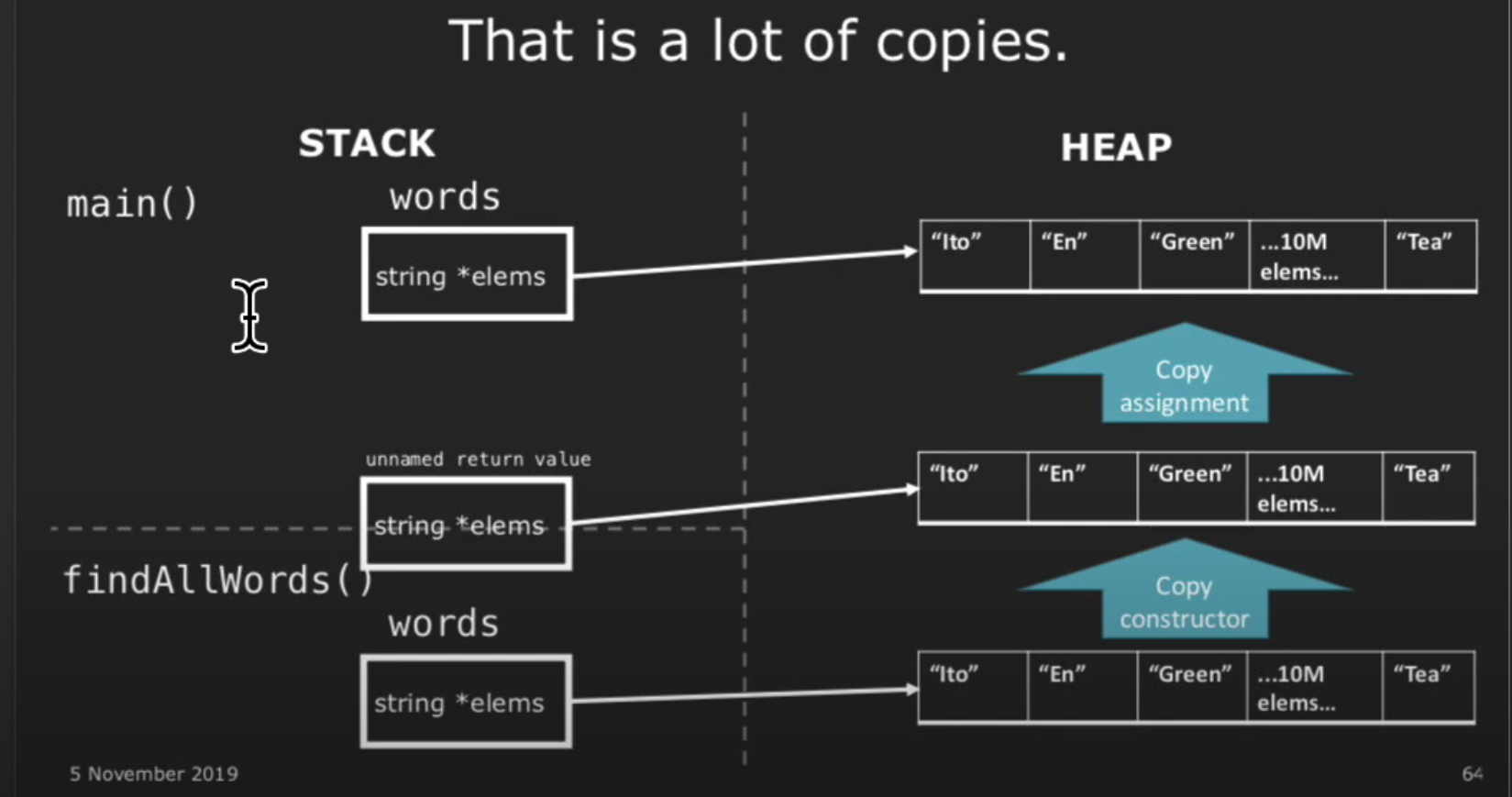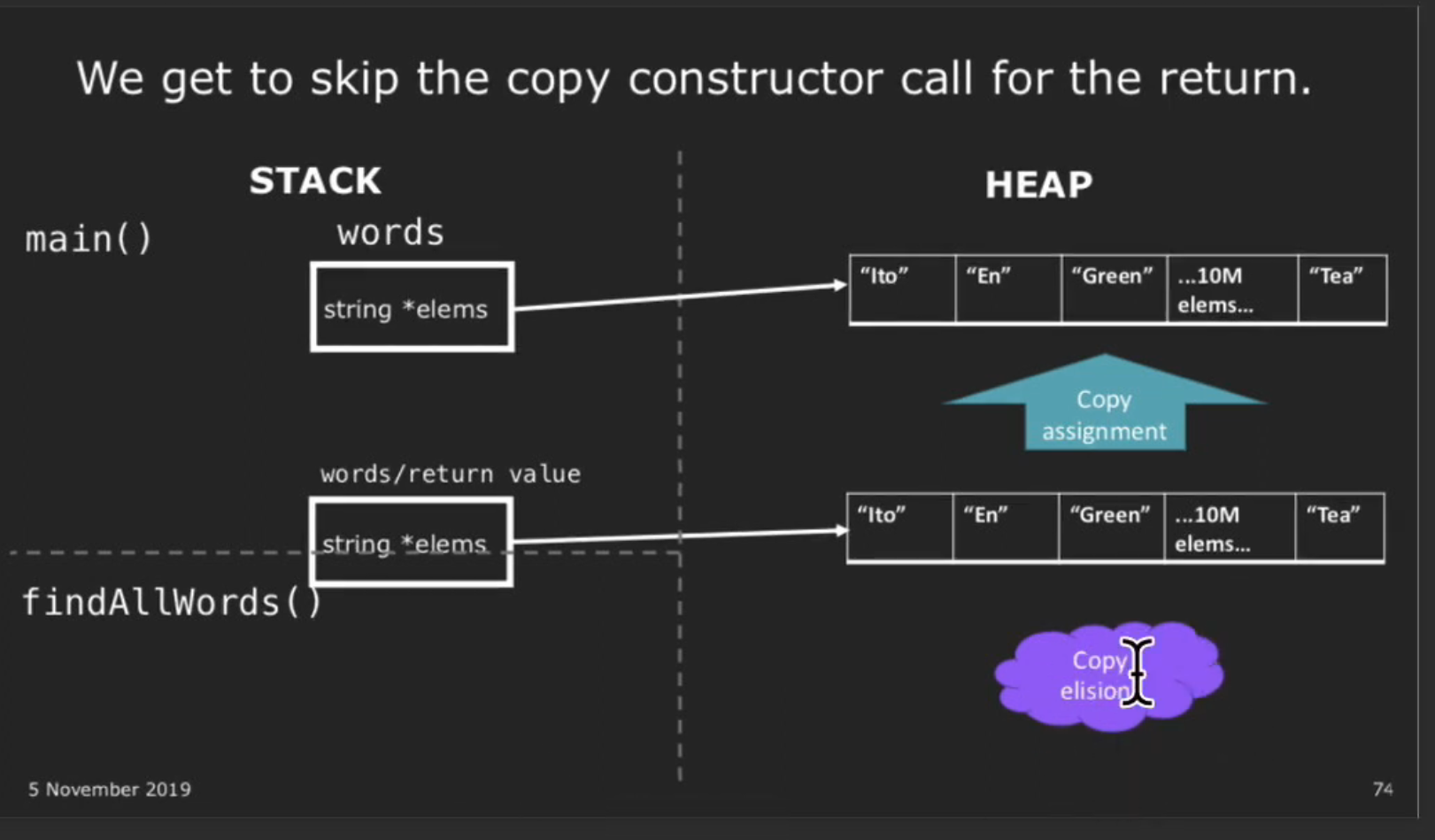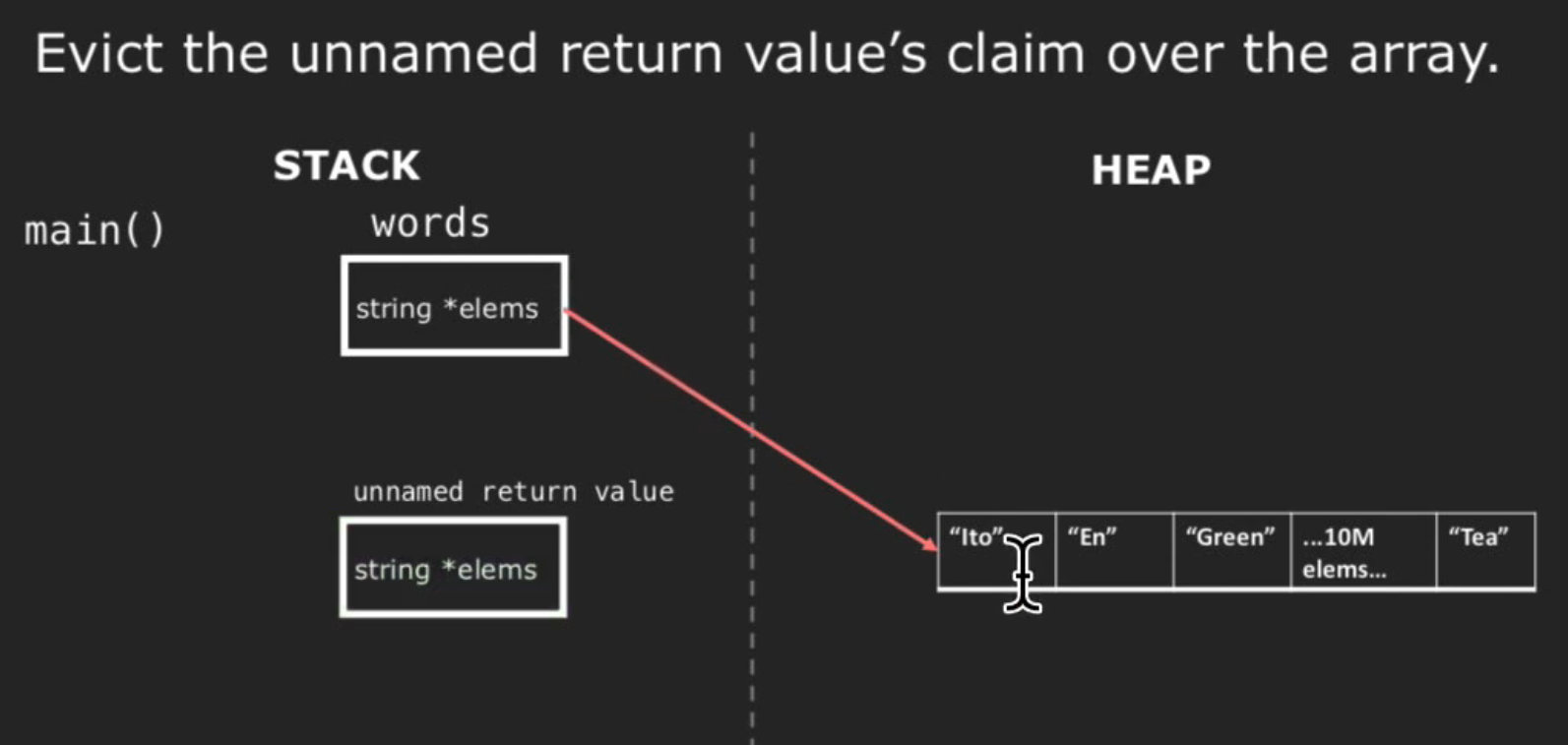12. Special Member Functions
Lec 12: Special Member Functions¶
more of const-ness¶
Example:
##include <iostream>
using namespace std;
class Date {
public:
int year, month, day;
Date (int y, int m, int d) : year(y), month(m), day(d) {}
int& get_year();
const int& get_year() const;
};
int& Date::get_year() {
return this->year;
}
const int& Date::get_year() const {
return this->year;
}
int main()
{
const Date date{2024, 1, 11};
cout << date.get_year() << endl;
return 0;
}
该例中,date 是 const Date object。如果没有 const int& Date::get_year() const {...} 的话,那么 get_year 就不可以被调用,因为本来 get_year 的返回值不是(底层) const。
- 注意:
constobjects 只能在 constructor 和 destructor 处更改自己的
Special Member Functions¶
- Default construction
- object created with no parameters
- Copy construction
- object is created as a copy of an existing object
- Copy assignment
- existing object replaced as a copy of another existing object
- Destruction
- object destroyed when it is out of scope
Example:
StringVector function(StringVector vec0 /* (2) */) {
StringVector vec1; // (1)
StringVector vec2{"Ito", "En", "Green"}; // Normal construction
StringVector vec3(); // This is actually a function declaration,
// which is C++'s most vexing parse.
StringVector vec4(vec2); // (2)
StringVector vec5{}; // (1), `{}` can be used to "replace" `()`
StringVector vec6{vec3 + vec4}; // (2)
Stringvector vec7 = vec4; // (2)
vec7 = vec2; // (3)
return vec7; // (2), since vec7 is in the scope of `function`
// and return value should be out of the scope.
// So we construct a out-of-scope copy of vec7
// (4).`vec1~7` are destructed here.
}
Copy Constructor¶
Take StringVector as example:
class StringVector {
private:
size_t logicalSize;
size_t allocatedSize;
std::string* elems;
};
// `noexpect` mean the program will abort
// when exception occurs in this procedure (constructor)
StringVector::StringVector (const StringVector& other) noexcept :
logicalSize(other.logicalSize), allocatedSize(other.allocatedSize) {
elems = new std::string[allocatedSize];
std::copy(other.cbegin(), other.cend(), begin());
}
Note:
The copy constructor is automatically invoked in two scenarios:
- When a function is called and a non-reference argument is passed.
- When a function returns a non-reference argument.
In these cases, the copy constructor is responsible for creating a copy of the object being passed or returned.
##include <iostream>
using namespace std;
class Test {
public:
Test() : count(0) {}
Test(const Test& other) noexcept {
this->count = other.count + 10000;
}
~Test() {
// default
}
Test& operator=(const Test& other) {
this->count = other.count + 1;
return *this;
}
Test& operator() () {
cout << count << ' ';
return *this;
}
private:
int count;
};
Test test_non_reference(Test test) { // copy constructor
test(); // 10000
return test; // copy constructor
}
Test& test_reference(Test &test) { // reference, no copy
test(); // 20001
return test; // reference, no copy
}
int main()
{
Test test;
test(); // 0
test = test_non_reference(test)() ; // 20000
test(); // 20001
test = test_reference(test)(); // 20001
test(); // 20002
return 0;
}
Copy Assignment¶
StringVector& StringVector::operator= (const StringVector& other) {
// check if `*this` and `other` are the SAME object
// i.e. &(*this) == &other ?
if (this != &other) {
delete[] elems;
logicalSize = other.logicalSize;
allocatedSize = other.allocatedSize;
elems = new std::string[allocatedSize];
std::copy(other.cbegin(), other.cend(), begin());
}
return *this;
}
delete: Explicitly Preventing Copy¶
In ifstream, objects are NOT allowed to be copied. Thus:
template <...>
class ifstream<...> {
public:
ifstream& operator= (const ifstream& other) = delete;
};
Rules¶
Rule of Zero¶
If the default operations work,then don't define your own custom ones.
- makes the code clean
- you won't make a mistake
Rule of Three¶
If you decide to define (or delete) at least one of
- copy constructor
- copy assignment
- destructor
you should define ALL three of them.
Optimization¶
Without optimization, if you initialize an array in main and call findAllWords:

The array will be repetitively created three times, which is a waste of time.
Return Value Optimization (RVO)¶
If the compiler know that you are going to return the vector anyway, when you create the vector in local scope, the compiler actually create it in the stack frame.

Even Better?¶
Using std::move, you can actually steal the resource from the findAllWords
